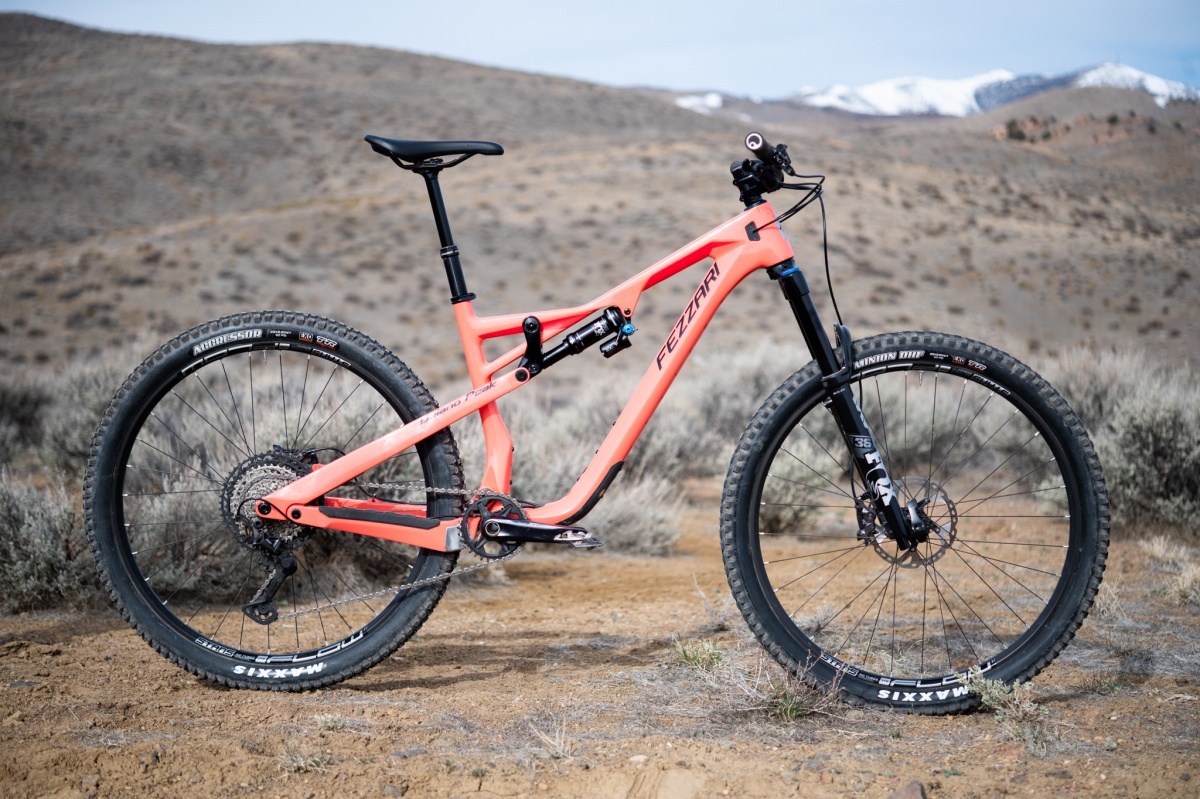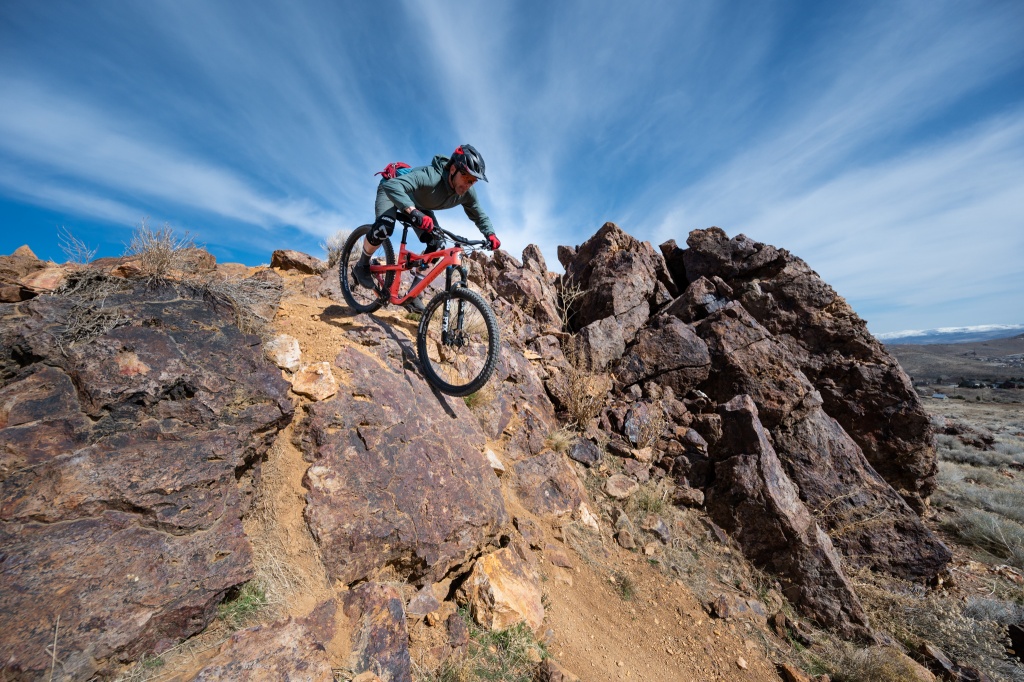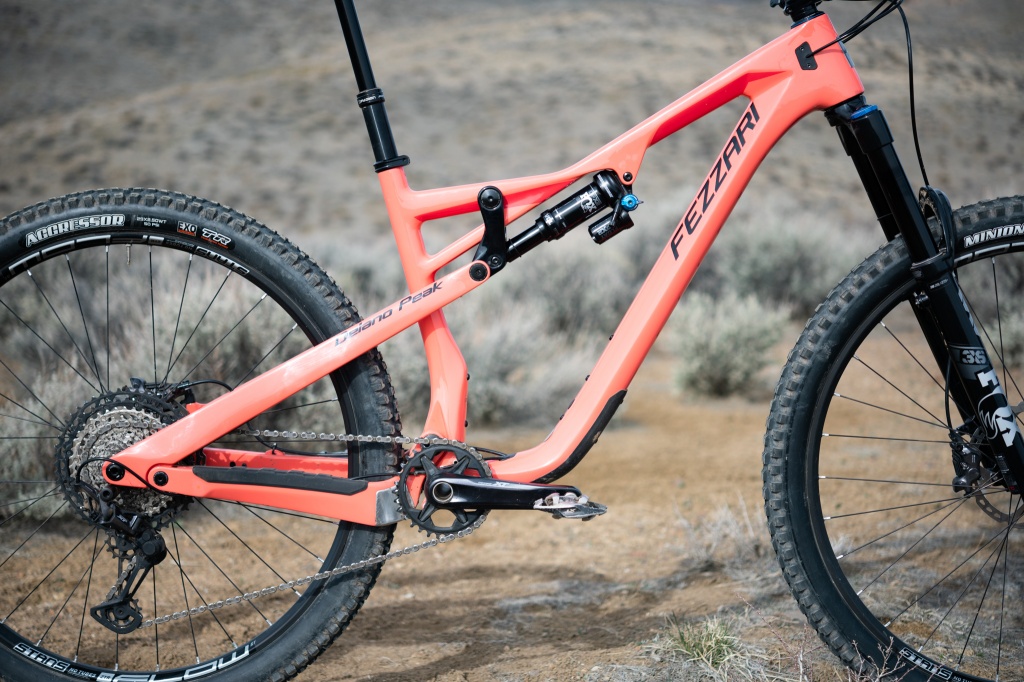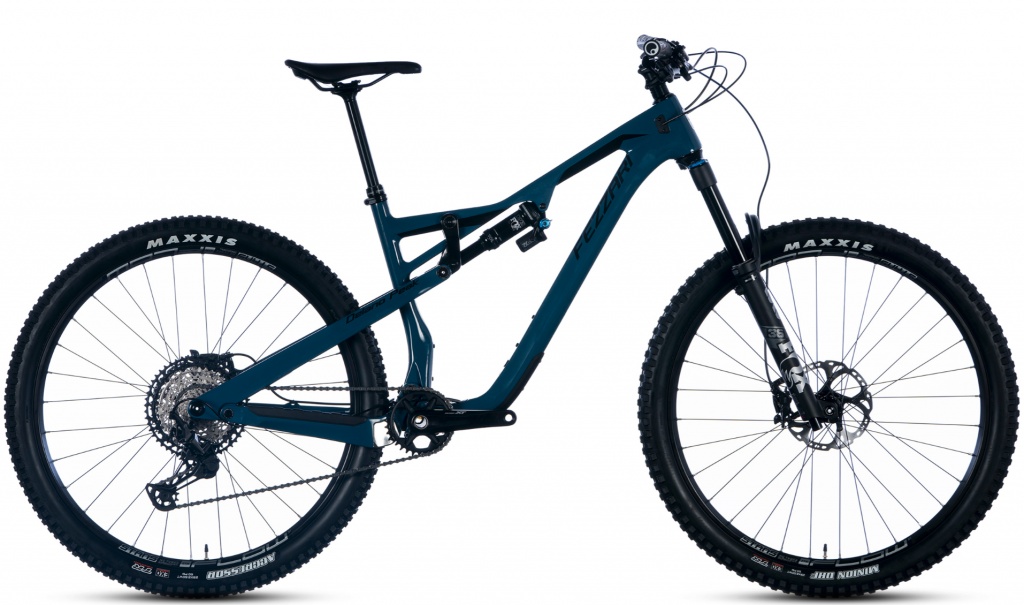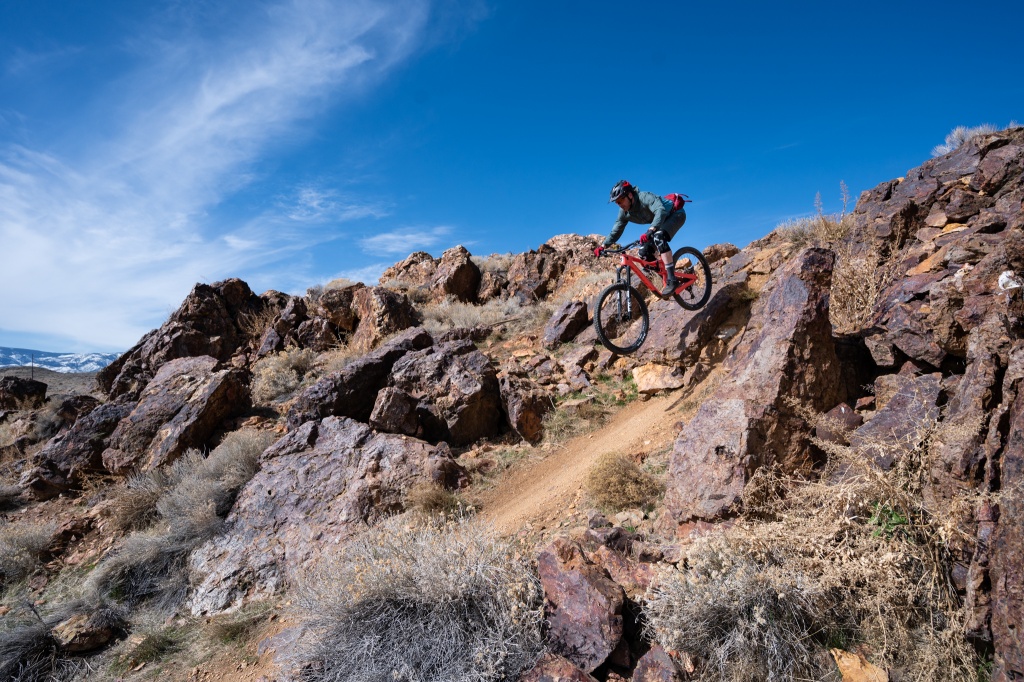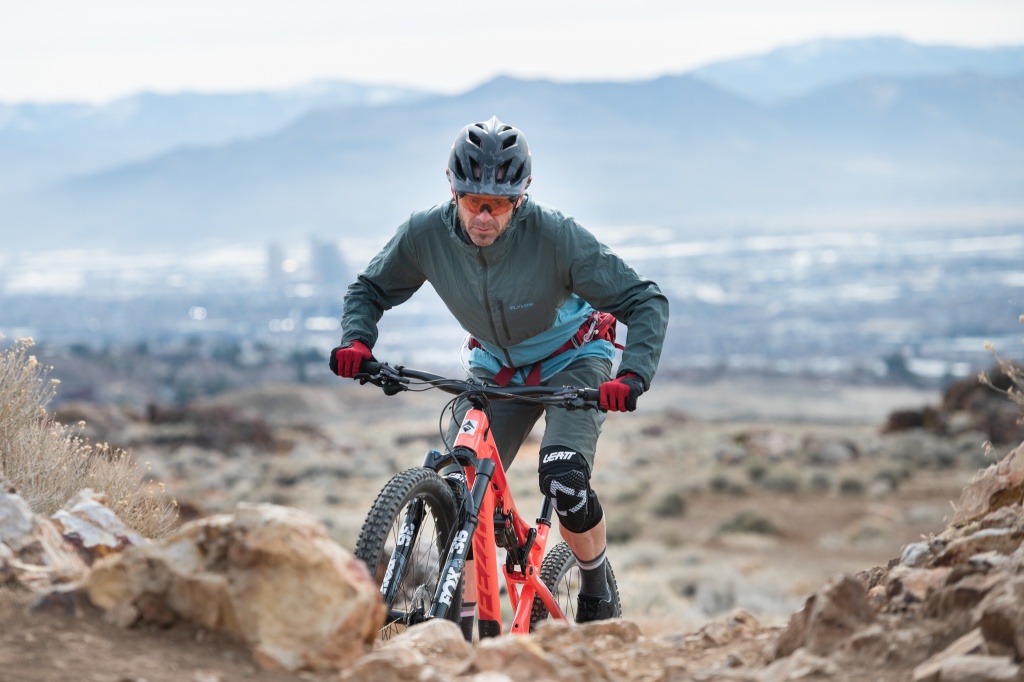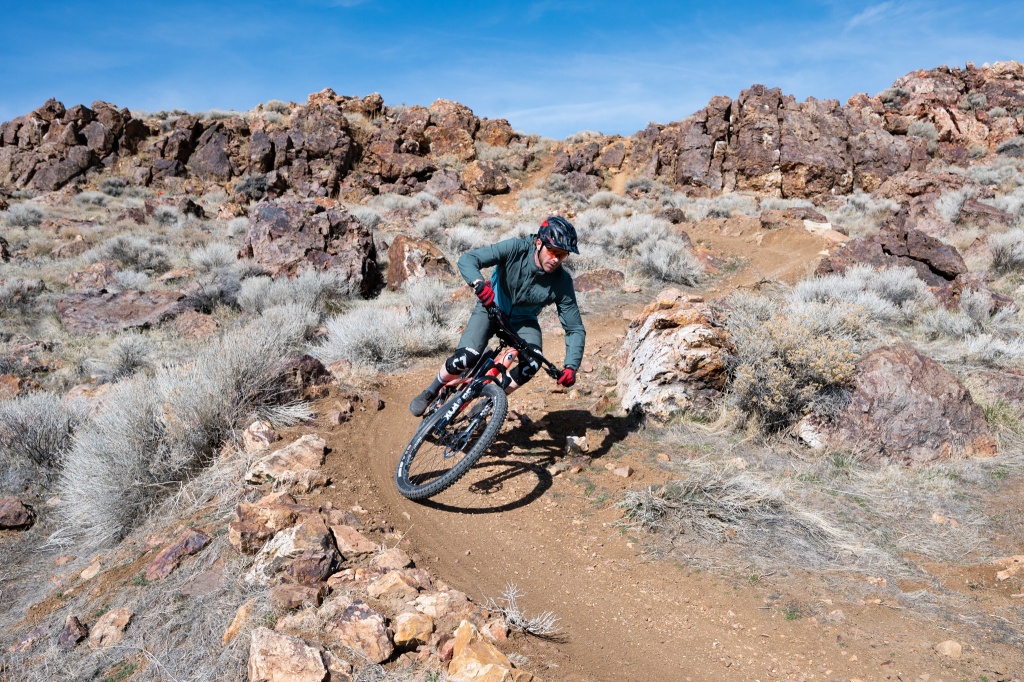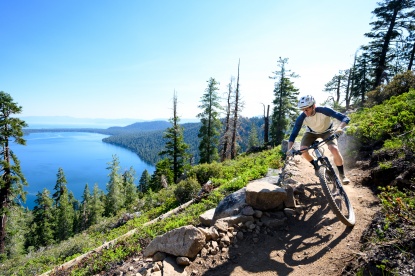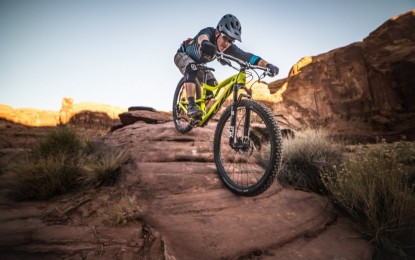Fezzari Delano Peak Elite Review
Our Verdict
Compare to Similar Products
 This Product
Fezzari Delano Peak Elite | |||||
|---|---|---|---|---|---|
| Awards | |||||
| Price | $4,599 List | $4,300 List $3,500 at Evo | $5,099 List | $2,999 List | $3,199 List |
Overall Score  |
|||||
| Star Rating | |||||
| Bottom Line | An excellent value mid-travel trail bike with a crowd-pleasing, well-rounded performance | An innovative, highly adjustable longer travel trail bike that can span disciplines from everyday trail riding to bike park laps | A trail bike for whatever trail you may encounter, the Hightower has resisted becoming too much bike, keeping it playful and versatile; It's an excellent platform for riders who go hard | The aluminum framed Ibis Ripmo AF is the best aggressive trail bike you'll find at this price | Ibis' versatile and fun-loving short travel trail bike in a more affordable but slightly heavier aluminum-framed package |
| Rating Categories | Fezzari Delano Peak... | Specialized Stumpju... | Santa Cruz Hightowe... | Ibis Ripmo AF NX Eagle | Ibis Ripley AF Deore |
| Fun Factor (25%) | |||||
| Downhill Performance (35%) | |||||
| Climbing Performance (35%) | |||||
| Ease of Maintenance (5%) | |||||
| Specs | Fezzari Delano Peak... | Specialized Stumpju... | Santa Cruz Hightowe... | Ibis Ripmo AF NX Eagle | Ibis Ripley AF Deore |
| Wheel size | 29" | 29" | 29" | 29" | 29" |
| Suspension & Travel | TetraLink - 135mm | FSR - 150mm | Virtual Pivot Point (VPP) - 140mm | DW-Link - 147mm | DW-Link - 120mm |
| Measured Weight (w/o pedals) | 30 lbs 5 oz (Large) | 31 lbs 14 oz (Large) | 32 lbs 8 oz (Large) | 34 lbs (Large) | 33 lbs 3 oz (Large) |
| Fork | Fox 36 Performance Elite, 150mm | Fox 36 Rhythm - 160mm | FOX 36 Float Performance, 150mm | DVO Diamond D1 160mm | Fox 34 Performance - 130mm |
| Shock | Fox Float DPX2 Performance Elite | Fox Float DPX2 Performance | RockShox Super Deluxe Select+ | DVO Topaz T3 Air | Fox Float DPS Performane EVOL |
| Frame Material | CleanCast Carbon Fiber | FACT 11m Carbon Fiber | Carbon Fiber "C" | Aluminum | Aluminum |
| Frame Size | Large | S4 (Large equivalent) | Large | Large | Large |
| Frame Settings | Flip Chip | Flip Chip and Headtube angle | Flip Chip | N/A | N/A |
| Available Sizes | S-XL | S1-S6 | S-XXL | S-XL | S-XL |
| Wheelset | Stan's Flow S1 rims with Stan's Neo hubs | Roval 29 alloy rims with Shimano Centerlock hubs, 30mm ID | RaceFace AR Offset 30 w/ DT Swiss 370 Hubs | Ibis S35 Aluminum rims with Ibis hubs, 35mm ID | Ibis S35 Aluminum rims with Ibis hubs, 35mm ID |
| Front Tire | Maxxis Minion DHF EXO 29 x 2.5" | Specialized Butcher GRID TRAIL T9, 2.6" | Maxxis Minion DHR II 2.4 3C MaxxGrip EXO | Maxxis Assegai EXO+ 2.5" | Schwalbe Hans Dampf 2.6" |
| Rear Tire | Maxxis Aggressor EXO 29 x 2.5" | Specialized Eliminator GRID TRAIL T7, 2.3" | Maxxis Minion DHR II 2.4 EXO 3C MaxxTerra | Maxxis Assegai EXO+ 2.5" | Schwalbe Hans Dampf 2.6" |
| Shifters | Shimano SLX | Shimano SLX 12-speed | SRAM GX Eagle | SRAM NX Eagle | Shimano Deore 12-speed |
| Rear Derailleur | Shimano XT 12-speed | Shimano SLX 12-speed | Sram GX Eagle AXS1 | SRAM NX Eagle | Shimano Deore 12-speed |
| Crankset | Shimano XT M8100 32T | SRAM Descendant 7K 32T | SRAM GX Eagle 148 DUB 170mm 32t | SRAM NX Eagle DUB 32T | Shimano Deore M6100 30T |
| Saddle | Ergon SM Stealth | Specialized Bridge Comp | WTB Silverado CroMo | WTB Silverado Pro | WTB Silverado 142mm |
| Seatpost | X-Fusion Manic | X-Fusion Manic 170mm (S4/S5), 34.9 diameter | RockShox Reverb Stealth | KS Rage-i 150mm(Large) | KS Rage-i 150mm(Large) |
| Handlebar | Fezzari FRD Charger 35, 800mm | Specialized 6061 alloy, 30mm rise, 800mm width | Burgtec RideWide Alloy - 800mm | Ibis 780mm Alloy | Ibis 780mm Alloy |
| Stem | Fezzari FRD Charger 35 | Specialized Alloy Trail stem, 35mm bore | Burgtec Enduro MK3, 42mm | Ibis 31.8 50mm | Ibis 31.8mm 50mm |
| Brakes | Shimano XT 4-piston | Shimano SLX 4-piston | SRAM Code R | SRAM Guide T 4 piston | Shimano Deore M6120 4-piston |
| Measured Effective Top Tube (mm) | 613 | 625 | 626 | 631 | 630 |
| Measured Reach (mm) | 480 | 475 | 475 | 473 | 475 |
| Measured Head Tube Angle | 65.4-degrees H/65-degrees L | 63-65.5 (adjustable) | 64.8-degrees H / 64.5-degrees L | 64.9-degrees | 65.5-degrees |
| Measured Seat Tube Angle | 77.9-degrees H/77.5-degrees L | 76.9-degrees | 76.7-degrees H / 76.4-degrees L | 76-degrees | 76-degrees |
| Measured Bottom Bracket Height (mm) | 345 | 340 H/333 L | 342 H/338L | 340 | 335 |
| Measured Wheelbase (mm) | 1234 | 1247 | 1244 | 1239 | 1217 |
| Measured Chain Stay Length (mm) | 434 | 438 (S1-S4) | 437 (varies by size) | 435 | 432 |
| Warranty | Lifetime | Lifetime | Lifetime | Seven Years | Seven Years |
Our Analysis and Test Results
Should I Buy This Bike?
Fezzari isn't exactly a household name in the mountain bike world, but the direct-to-consumer brand has been steadily gaining traction over the past few years. The Delano Peak is a relatively new addition to their line, released in summer 2020, filling in the mid-travel gap between its longer and shorter travel siblings. This carbon-framed bike has 135mm of rear suspension paired with a 150mm fork, positioning it squarely in the do-it-all trail bike category, and we found it to be exactly that. Its geometry is modern and up to date, and the Delano Peak performs well in virtually all situations with no glaring weak points to speak of. With a stout carbon frame and quality component specification, it descends with the confidence and stability of a bike with more travel while maintaining responsive handling and a relatively playful demeanor. It also climbs and negotiates technical terrain well, although we found the use of the compression damping switch to helpful for maximizing efficiency on the ups and in rolling terrain. Fezzari's consumer-direct sales model helps to make this bike an exceptional value, and the Elite build we tested is absolutely fantastic for the price. It also comes in 7 other builds or as a frame only. Their 23-point custom setup ensures the bike arrives mostly tuned for rider weight and height with only a few simple steps to get the bike ride-ready from the box. While the Fezzari name might not command the same cool-factor as other brands, the Delano Peak brings very competitive, well-rounded performance at an impressive price point that we feel makes it a very compelling option.
The Santa Cruz Hightower is an interesting comparison to the Delano Peak. At 140mm, the Hightower sports 5mm more rear-wheel travel, but otherwise, the two bikes have very similar geometries and intended uses. Both are versatile and well-rounded mid-travel trail bikes that are sure to please the vast majority of riders. We found the Hightower's VPP suspension design to be more supportive when climbing, and we didn't feel the need to use its compression damping switch except for long road grinds. Likewise, on the descents, The Hightower handles and recovers from big hits better than most bikes in this travel bracket. The Fezzari isn't quite as composed in heavy-hitting terrain, although some experimenting with volume spacers might change that. Which is better? The Hightower feels a tad bulkier and not quite as nimble as the Fezzari, though we'd argue it charges marginally harder on the descents. There's also a pretty dramatic price difference to consider. For comparison, the Hightower XT build goes for $6,099.
Frame Design
The Delano Peak frame is crafted from CleanCast carbon fiber and sports a look that could be described as somewhat angular. The front triangle is nice and stiff with a reinforced head tube, and the rear triangle has beefy, wide chain and seat stays. The 135mm of rear-wheel travel is controlled by Fezzari's TetraLink suspension design. TetraLink is basically a Horst Link system with the main pivot attached just above the bottom bracket, pivots on the chainstays just forward of the rear axle, and a rocker link that drives the shock horizontally attached to the top tube a couple of inches forward of the seat tube junction. The frame has room for two water bottle cages within the front triangle (sizes M, L, and XL), molded chainstay and down tube protection, and internal cable routing. The CleanCatch cable routing covers do a relatively good job of keeping the internally routed cables rattle-free. For simplicity, Fezzari has gone with a threaded bottom bracket, as well as SRAM's Universal Derailleur Hanger. The Delano Peak has a low standover height, with 300mm of seatpost insertion depth on all frame sizes.
Fezzari designed the Delano Peak with a geometry that is spot on for a modern trail bike. It has a 65-degree head tube angle and a properly steep 77.5-degree seat tube angle. A set of flip-chips in the lower shock mount can be used to adjust the geometry slightly and steepen the head and seat tube angles by 0.4-degrees. Our size large test bike measured with a 613mm effective top tube length and a 480mm reach along with 434mm chainstays to give it a 1,234mm wheelbase. It comes in four sizes, S-XL.
Design Highlights
- Full “CleanCast” carbon fiber frame
- 29-inch wheels only
- 135mm of TetraLink (Horst Link) rear suspension
- Designed around a 150mm reduced offset fork
- Room for 2 water bottles within the front triangle
- Flip-chip adjustable geometry
- Threaded bottom bracket
- SRAM Universal Derailleur Hanger (UDH)
- Available in 8 builds ranging from $3,499 to $8,999
- Offered as frame and shock only for $2,299
Downhill Performance
When we first threw a leg over our “Coral Dune” colored Delano Peak (it comes in a more subtle dark blue as well) we had no idea what to expect. It didn't take long to familiarize ourselves with it, however, and there was almost no “getting to know you” period. We quickly found it to perform well on the descents, with just-right geometry, responsive handling, and great composure and stability at speed. It's no enduro bike, of course, but this mid-travel trail bike is impressively versatile and plenty capable in steep, rough terrain. The quality build only helps back up its descending prowess, and this bike is seriously ready to shred right out of the box other than some annoying rattle coming from the finned Shimano brake pads.
We think Fezzari pretty much hit the nail on the head with the geometry of the Delano Peak. It checks all of the boxes on the modern geometry checklist without going overboard. The result is an impressively balanced ride that performs well in virtually all situations on the descents. The 65.4/65-degree, high/low settings respectively, is slack enough to provide a confident front end when rolling into steep and rough terrain, yet not so slack that handling feels sluggish or vague at lower speeds or in tighter terrain. The 480mm reach on our size large doesn't feel quite as long as it measures, yet it helps give the rider a comfortable, balanced, between-the-wheels body position. The 1,234mm wheelbase seems just right, helping to give the Delano Peak impressive stability at speed without compromising maneuverability through corners or low-speed tech. Finally, the moderate length 434mm rear center/chainstays help to give it a lively and sporty feeling character when it comes time to slap a berm or hit a trailside jib. We tested the Delano Peak in both geometry settings, and although the 0.4-degree change is quite minimal, we did notice a slight difference in its character. The low setting seemed to noticeably relax the feel of the bike making it just a touch less spry and lively.
After spending some time on the Delano Peak, our testers concluded that there must be more to its downhill performance than just its geometry. Not only is it super calm and stable at speed, but it tracks through turns and holds a line impressively well. Taking a look at the frame design, it's apparent that Fezzari went out of their way to make it super stiff, almost overbuilt. The chainstays and seat stays are super wide giving the rear triangle a rigid, slop-free feel. At the head tube, where the top tube and down tube meet, the junction appears to be heavily reinforced. At high speeds, smashing through a rock garden, or railing a turn, the Delano Peak just feels super solid. It's also pretty forthcoming with its travel. The TetraLink design has a nice supple feel off the top, and we found it to perform well through chunky rock gardens and chop. On bigger hits, we found it to feel progressive enough at the end of its travel, although we did bottom it out a couple times with some ill-advised drops to flat. Even though it will trick you into thinking it has more travel, there's still only 135mm back there, and while it doesn't exactly blow through it, it gives it up a little more easily than some. We'd be inclined to open up the rear shock and add a larger volume spacer to add just a little more bottom-out resistance.
Fezzari spec'd the Delano Peak Elite with excellent components that didn't really leave any room for complaint. The Fox 36 Performance Elite fork handles the 150mm of front travel with beefy 36mm stanchions, a sturdy chassis, and ample tuneability with the quality Grip 2 damper. Likewise, the Fox DPX2 shock is a great choice that works reliably. The cockpit consists of some house-branded parts, but the short, beefy stem and 800mm wide handlebar felt great and provided ample leverage and responsive handling. The 170mm (size-specific depending on 23-point setup) X-Fusion Manic dropper is nothing fancy, but it works just fine to get that saddle out of the way on descents. Shimano's impressive 4-piston XT brakes are fantastic, paired with 180mm rotors front and rear. Sure, it would be nice to have a bigger rotor up front, but we never felt underpowered, even with the 180mm. The finned brake pads that come standard in the XT brakes tend to rattle, however, and we would quickly swap them out for non-finned pads to stop the noise. The Stan's Flow S1 wheels are a great choice at this price point (you can upgrade to ENVE AM30's for an additional cost), and the 2.5-inch Maxxis Minion DHF/Aggressor combo leaves nothing to be desired.
Climbing Performance
Testers found the Delano Peak to be a capable and comfortable climber. The geometry is great, and it handles well in most climbing situations. We did find that the rear suspension felt fairly active, and the use of the compression damping switch was preferred for a more supportive and efficient feeling pedaling platform. Once again, this bike's quality build was fantastic and only helped enhance its climbing performance.
Geometry is the primary reason the Delano Peak is such a capable and comfortable climber. The 77.5-degree (low setting) seat tube angle is nice and steep, lining the rider up right above the bottom bracket for efficient power transfer and a great body position for tackling technical and steep sections of trail. It also makes the lengthy 480mm reach of our size large test bike feel a bit shorter than it is. The 65-degree (low setting) head tube angle is relatively slack, but thanks to the reduced offset fork, handling remains responsive and the front end feels planted and not prone to wandering no matter how steep the pitch. The moderate length 1,234mm wheelbase and 434mm chainstays help keep it from feeling like a handful in the tight stuff or sharp uphill switchbacks. It doesn't cut like a paring knife mind you, but it negotiates most terrain with relative ease. During testing, we rode the Delano Peak in both the high and low geometry settings, and despite just a 0.4-degree difference, we felt the high setting provided a slightly crisper and livelier feel. Our test bike weighed in at 30 lbs and 5 oz, set up tubeless and without pedals, which is right about what you'd expect for a bike in this travel bracket. Interestingly, we found it to feel lighter than that, despite what the scale said.
Fezzari's TetraLink suspension design works pretty well on the climbs, but testers found it to feel almost a little too active. With the rear shock in the open setting, the active suspension provides loads of traction and good small bump compliance, but it doesn't feel as supportive under pedaling forces as some other designs we've tested. It's not egregiously active, but we found ourselves reaching for the compression damping switch quite often, and the trail setting was preferred for most climbs and rolling terrain for its increased support and efficiency. Luckily, on the Delano Peak, the shock's location makes reaching down and flipping that blue switch easier than most. Assuming you're not climb-switch averse, this bike is a faithful and efficient climbing partner. Perhaps a stiffer shock tune would be preferred, but we got along with it well enough by just using the compression damping switch.
The component specification of the Delano Peak Elite is very well chosen and performs fantastically on the climbs. The Shimano XT 12-speed drivetrain works flawlessly with super crisp and precise shifting and a huge range for any steepness of climb, although it does come with an SLX shifter. The 2.5-inch wide Maxxis Aggressor is a versatile rear tire that blends reasonably low rolling resistance with good climbing traction in most conditions. Comfortable and ergonomically friendly Ergon grips and saddle help keep your hindquarters and hands happy as you tick off the miles and vert.
Photo Tour
Value
Thanks to Fezzari's consumer-direct sales model, you get a lot for your money here. The Elite build we tested is very affordable for a carbon-framed bike with a very nice component specification. Considering the fact that bikes from mainstream brands with similar build kits and performance will set you back at least $1,000 to $1,500 more, we feel the Delano Peak is an excellent value. In fact, all of the complete builds offered, there are 8, are priced well below what you'd find from most other brands. If you're on a tighter budget, the Comp build will save you a thousand bucks and comes with an impressive DVO suspension package and a Shimano SLX 12-speed drivetrain.
Conclusion
The Delano Peak is an excellent mid-travel trail bike from the lesser-known consumer-direct brand, Fezzari. What it lacks in brand recognition and cool-factor, it more than makes up for with its well-rounded performance and impressive value. This bike's geometry is perfectly dialed, and there's virtually no speed, terrain, or situation where it felt out of place. No, it's not an enduro bike, nor is it a beefed-up XC bike, it's exactly the versatile mid-travel, do-it-all trail bike that it's intended to be. The Delano Peak really took us by surprise, impressed our testers, and exceeded our expectations.


